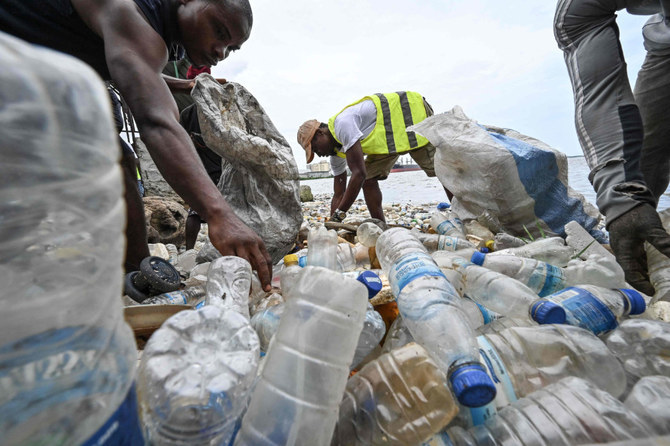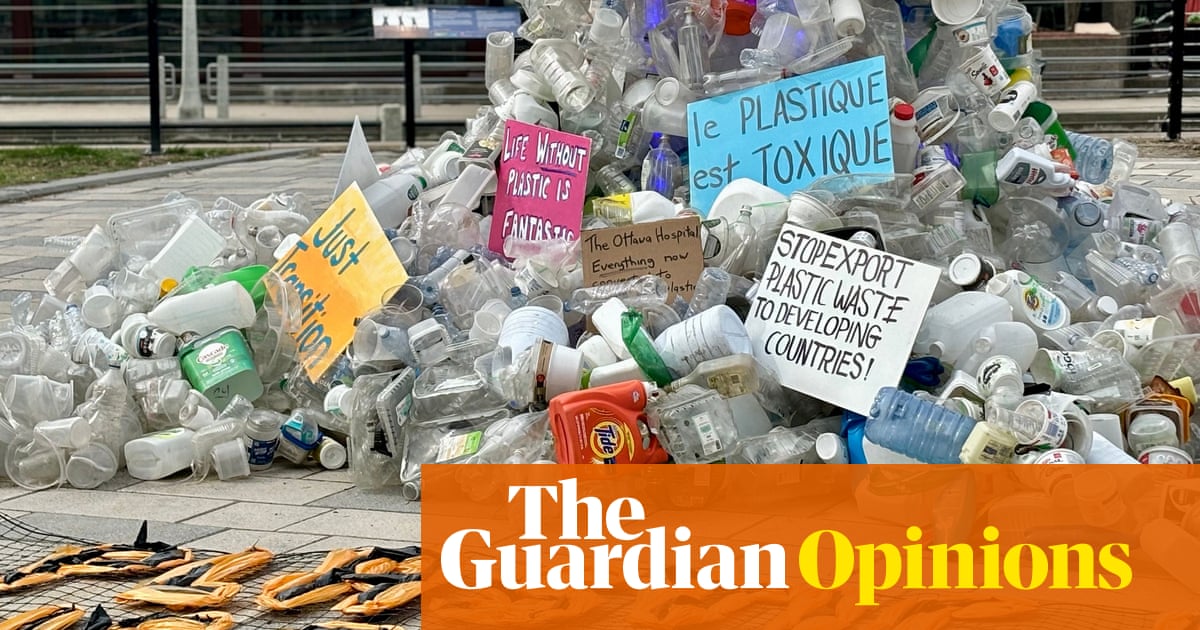
This World Environment Day 2023, which falls on June 5, is a special occasion. It is the 50th World Environment Day. The theme for this year is ending plastic pollution, one of the biggest and most pervasive hazards that the environment faces.
After the proliferation of plastic in every aspect of life during the past five decades, when mountains of plastics emerged in every corner of the world and traces of plastic were found in fish and other marine life, the dialogue over the past 10 years or so, at least in Europe, began to shift to recycling. This was seen as a solution to the toxic menace that global corporates, always on the lookout for easy solutions, had created by the excessive use of plastic.
This focus around recycling provided a thin veil of dignity, but even more than that a kind of secrecy for companies as business continued exactly as before. Under the magic mantra of “recycle,” companies and consumers began playing with plastics as never before. As a result, global plastic production has continued to increase every year since the 1950s, from 100 million tons a year in the 1990s to almost 400 million tons last year.
The rate of recycling is at the very best 9 percent a year, meaning that almost 360 million tons of plastic produced last year will end up in landfills, water streams and oceans, spreading highly toxic microplastics and entering the food chain of every animal.
After years of proactively promoting and advocating recycling, even the UN Environment Programme has admitted that recycling is no solution to the plastics menace. In a speech delivered in Paris earlier this week, Inger Andersen, executive director of UNEP, said that recycling was not the answer. She added that current commitments for cutting plastics would lead to a reduction of only 8 percent in total plastic production and consumption by the year 2040, a classic case of too little, too late.
Andersen admitted to something that environmentalists had long been saying, that recycling was no solution as the global recycling infrastructure was entirely unable to cope with today’s volumes of plastic.
Admitting the failure of recycling was remarkably frank, at least for a senior UN official. Andersen then hit the nail on the head, saying that everything about plastics and the use of plastics in businesses needed to be rethought and redesigned.
That requires businesses to get over their tendency to go for low-hanging fruit and immediate returns rather than looking for credible and reliable solutions to the problems of the world today. This involves commitment toward good and sustainable business practices as well as a significant increase in investments. And to ensure that businesses are doing what is required, governments must put in place policies and rules and also ensure that these norms are strictly followed to achieve a real and meaningful cut in the production and consumption of plastics.
The world needs to unlearn a significant number of its habits and ways of doing business which have developed over the past 50 years. A complete transformation of current practices and a significant cut in the consumption of plastics at every stage is needed.
Everything about plastics and the use of plastics in businesses needs to be rethought and redesigned.
Ranvir S. Nayar
To get there, the first thing that is needed is to redesign products so that they use far less plastic. Indeed, as Andersen put it, the world does not need shampoos, soaps and detergents to be liquified, put in a plastic container and then delivered to consumers.
One of the significant factors in rising plastic pollution lies in the packaging of products such as shampoos, which can come in sizes varying from sachets of a few milliliters to plastic bottles of several liters. One of the easier solutions is to develop packaging out of natural materials such as bamboo or paper, or simply transport dried chemicals that can become shampoos or creams once you add water.
The other, once again very evident and very simple exercise, would be to rethink and redesign the packaging and shipping of products — two more aspects of modern business that are responsible for a huge amount of plastic consumption and wastage.
The amount of waste generated by plastic packaging has also been rising in the past two decades, more so with the boom, initially just in e-commerce and during the COVID-19 pandemic, in food delivery services in the past three years. The amount of plastic waste generated by packaging accounts for more than 40 percent of total plastic waste, hence the more than 250 million metric tons of plastic packaging that ends up as garbage every year.
Here again, there have been calls to reduce plastic packaging and replace plastic with biodegradable material, but too little has been done and clearly it would need strict and well-enforced laws to remove plastics from the packaging side of business.
The third aspect concerns the creation of an ecosystem where products are designed for long-life use and also for reuse and recycling — for instance, replacing small cosmetic bottles with big containers that are refilled when needed. This is especially true of cosmetics, as well as hotel toiletries, and can be expanded to domestic toiletries and food and beverages, which can be sold only in refillable and/or reusable glass bottles. For hotels, large dispensers, preferably non-plastic, can be provided for guests and refilled by housekeeping staff as needed.
None of these measures are revolutionary or innovative. They have been around for decades but have been forgotten or cast aside by businesses that were looking for ease of operations and increasing sales. This has led to the proliferation of plastics and other packaging materials. Note the sachets of shampoos and all kinds of cosmetics that did not exist two decades ago and serve no real purpose other than to boost a company’s turnover at a massive cost to the environment.
The plastic menace can be swiftly and effectively curtailed and even terminated if governments and consumers take tough decisions, which may hurt briefly but will eventually save the planet. It is time to bite the plastic bullet.
• Ranvir S. Nayar is managing editor of Media India Group.












